ART FAIRS
ART BRUSSELS 2025
Brussels





Eternal Garden is a solo exhibition showcasing new works that delve into themes of death, rebirth, and belief. The exhibition features a series of paintings that push the boundaries of Flood ; artistry by integrating ceramic elements onto the surface of the paintings. In these new pieces, he experiments with materiality, incorporating torn fabrics, various canvases, and linens that are layered onto the works, sometimes being pulled through the stretched canvases. The exhibition is set within an installation of watercolour botanical drawings inspired by the enigmatic Voynich Manuscript. These drawings sprout white ceramic foliage from the gallery walls. Throughout the duration of the art fair, the artist will progressively add more watercolour botanical drawings to the booth, gradually enveloping the space. This work explores themes of legacy, language, and the fragility of culture, evoking a sense of walking through the remnants of a lost civilization. The installation is centred around Flood ; ongoing interest in the writings and illustrations found in the mysterious Voynich Manuscript, which was discovered in Italy in 1912. Although the 250-page document features recognizable structures and formats, its language remains undecipherable, and the life forms depicted do not match any known classification system, perplexing cryptographers for over a century. Scholars have proposed various theories about its origins, suggesting it could be the work of a migraine-suffering monk from the 15th century, a hoax by Voynich himself, or, most intriguingly, the last remnant of a deceased culture. Regardless of the theory, it is the mystery that endures.
These are the ideas and questions that Flood aims to evoke through his work and installation. In the installation, the artwork appears to be gradually overtaken by the mysterious botanical drawings surrounding it. Certain pieces sprout ceramic foliage, while fabric dramatically flows and twists through the canvas. The white ceramic leaves suggest that the plants are withering in the air once they have exited the two-dimensional plane. The paintings themselves look weathered and worn, with fractured paint scattering across their surfaces, as if engaged in a struggle between decay and growth. They reward slow observation. Hidden within the ceramic foliage are small golden elements, and the paint reveals surprising dashes of colour, texture, and technique. Culture arises from civilization and serves as a tool to question the world around us. When used effectively, art can enhance our understanding of reality.
This idea has been a central concern in Flood’s work. He employs both abstract and representational painting techniques to dissect and challenge our perceptions, showing us new ways to see the world. Our natural environment has reclaimed many civilizations, eroding and consuming them once the inhabitants lose their struggle. An artist’s desire to be remembered is tied to the survival of humanity and culture. This raises an intriguing question : What would the last painting ever created look like ? What would Flood’s last painting resemble ?
This exhibition of new paintings by Damien Flood at Art Brussels 2025 follows a show that began at Green On Red Gallery in Dublin. His seventh solo exhibition with the gallery, titled As Above, so Below ( 6 February – 11 April 2025 ), marked another step in his ongoing exploration of the history and materiality of painting. Culture is born of civilization, a tool to question the world around us. Art can bring us closer to understanding reality. This has been a core concern in Flood’s work since the outset. Using abstract and representational painting and sculpture is, for him, a way to dissect and upend the world, showing us a way to look afresh. We are delighted to present a selection of these works once again at Art Brussels 2025.
Meditations on death and the afterlife continue to abound in As Above, so Below. Urns and vessels of different kinds first started appearing, fragmented, in Flood’s paintings in 2018 before they were realized in glazed and painted ceramic, independently of - though sometimes accompanying - the paintings. The artist describes them as “ definite moments in the exhibition space. “ Around this time, during a residency in Paris, the artist discovered the late, luscious ( death- bed ) flower paintings of Edouard Manet which inspired a new group of his own still life, flower paintings, continuing the memento mori theme.
When you lose loved ones, that shatters your understanding of the world and questions grow. These questions about life and why are we here are monstrous. You can’t answer them. But for me art should ask questions. It shouldn’t really give answers because answers suck the magic out of everything.
( The artist in conversation with Cristin Leach in Memento Mori, The Irish Arts Review Autumn 2022, p. 72 )
In Redeemer for example, a grinning skull - anatomically exact - stares straight at us from the centre of the painting, not unlike the image in the centre of Flood’s For After Ever ( 2022 ) 3-track album, recorded by the artist to coincide with Dig, the artist’s previous solo exhibition at the gallery. There is no avoiding the morbid message but the painting itself is teeming with life and objects, some bursting through the linen and stretcher from behind. Flood’s once illusionistic dark oval “ openings “ have led to intrusions through the back of the canvas from where more painted canvas fragments, gold-tipped poking ceramic fingers, beads, glazed ceramic leaves and more, invade.
Certain works sprout ceramic foliage while painted fabric theatrically flows and twists through the canvas plane. The white ceramic foliage also alludes to the plants atrophying in the air once they have left the two-dimensional plane. These new paintings are full of life and play and passages of seductive oil on canvas from impasto description to bare minimum information and line. Or is it outline ? What is not there is just as important as - and held in tension with - what is there. Absence and presence vie for your attention.
Like in Máirtín O Cadhain’s Cré na Cille, this could be a conversation with the afterworld, but exuberantly, inventively and stylishly told.
In As Above, so Below, Flood finds glorious and endless possibilities in expanding the possibilities for representation on the painted surface, while attacking or puncturing that surface, as if breaching the fourth wall. Paintings fold in on themselves in anti-gravitational reversions. Even the frame is now confused with the painting by being stretched, in the case of Torn Landscape ( 2025 ), in the same raw canvas, an ingenious final twist in the poetry of this painted world. Flood’s interpretation of the artist’s frame sewn together from scraps of linen and tacked to the edges ; a canvas framing a canvas.
Ever inventive, ever fragmented and ever fractured. Plenty to look at. Plenty to follow. Plenty to piece together as Flood continues to expand his repertoire and to push the limits of painting on canvas, including painting with canvas.
ART EVOLVE 2025
RDS, Dublin





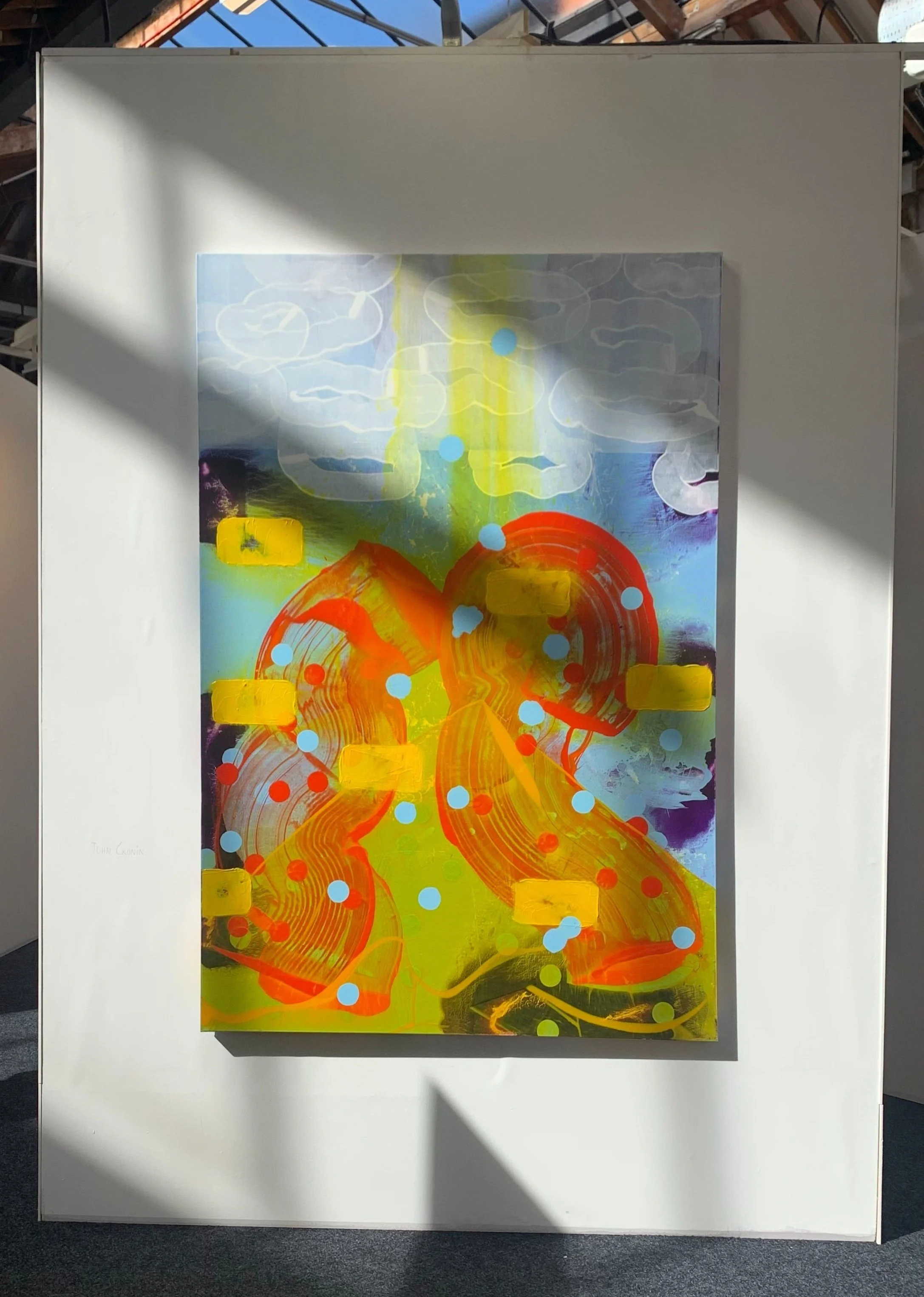


IMAGES 1-8: 1. Scott Lyall: Nanofoil (SLStudioClone1162) (UV-engraved photonic structures in aluminium foil, polymer coating, casein painted frame),Talent 53 (UV-cured inkjet on glass, mirror, acrylic gel medium and gold nano particles) 2. John Cronin: ZXX15 (Oil on aluminium) 3.Fergus Martin: Untitled I, Untitled II (Chalk pastel pigment on 400gsm cotton rag paper) 4. Scott Lyall: Talent 53 (UV-cured inkjet on glass, mirror, acrylic gel medium and gold nano particles) - Niamh McCann: Ambition-The Variations (Drawing, collage, ink, gold, leaf, mixed media on paper in painted frame), Macalla Ciùin/Silent echo-Working out/Colin Features again (Drawing, collage, ink, gold, leaf, mixed media on paper in painted frame) - Damien Flood: One Hundred Birds (Coil-wound earthenware vase with oil paint) 5. Alan Butler: FLORAGINSENG01, P2_Tex_0076_0_A22,P2_Tex_0076_0_A19 (Fabriano on paper Unique Cyanotype) 6. Damien Flood : Arboretum (Oil on linen, glazed ceramic, 22-carat gold leaf), Ginger Brother (Glazed earthenware sculpture with 22-carat gold leaf teeth) 7. John Cronin: Artificial Bee Colony III (Automated Bias) (Oil on canvas) 8. Tom Hunter: Persons Unknown, Woman Reading a Possession Order, 1997 (C-Type print Last of edition of 10) 9. Fergus Martin: Untitled I, Untitled II (Chalk pastel pigment on 400gsm cotton rag paper) - Caroline McCarthy: Painting(Camp) (Oil on canvas).
ART SG 2025
Singapore
5 January - 17 January 2025
Green On Red Gallery is proud of their participation in ART SG 2025, representing 4 gallery artists from Ireland, Canada and Germany. They are Caroline McCarthy ( IRE., works/lives London ), Kirstin Arndt ( DE ), Damien Flood ( IRE ) and Scott Lyall ( CAN, works New York/Toronto ), also represented by Miguel Abreu Gallery, New York and Campoli Gallery, Paris.
THE ARMORY SHOW 2024
New York












When music is played flawlessly, we describe the virtuosic performance as ‘pitch-perfect’. By its nature, the virtuosity we admire in music is not exclusively about the execution of one note by an instrument or vocal chord, but about the transition of each, their passing, their sleek progress. The importance of a single, crystalline sound is matched by the sonic architecture of disappearance and emergence: to be ‘pitch-perfect’, one must produce a sequence of soft portals that usher one through a lasting, unfolding harmony.
This thought is at the heart of Green On Red Gallery’s presentation for the Armory Show 2024, as each artist’s oeuvre stands alone and yet one flows seamlessly into another.
Caroline McCarthy’s post-YBA practice, for instance, turns on her bombastic approach to the ephemera of mass culture, producing works that play with and ironise - often in vividly colourful creations - the daunting prospect of civilisational decay. Resonant traces of humour and playfulness are found in Nigel Rolfe’s style of performance art, as he meticulously constructs scenarios that foreground his labour in the pursuit of irrational or impossible goals. Rolfe’s work equally contains a certain austerity in form and ethos, and this austere instinct is shared by Nil Yalter, the most recent recipient of the Golden Lion for lifetime achievement at the Venice Biennale. Yalter’s feminist and subaltern-centred focus renders stark contrasts between freedom and subjugation, evident in her famous 1974 video-work The Headless Woman (The Belly Dance). The political dimension of Yalter’s oeuvre is paralleled in Fergus Martin’s bipolar aesthetic, where objects clash with their environment, and strong colour-fields are paired to either create discordancies or euphonious relations.
-
2024
- Apr 25, 2024 – Apr 28, 2024 PHOTOFAIR Shanghai 2024 Apr 25, 2024 – Apr 28, 2024
- Apr 11, 2024 – Apr 14, 2024 Art Düsseldorf 2024 Apr 11, 2024 – Apr 14, 2024
- Jan 19, 2024 – Jan 21, 2024 Art Singapore 2024 Jan 19, 2024 – Jan 21, 2024
-
2023
- Sep 8, 2023 – Sep 10, 2023 The Armory Show 2023 Sep 8, 2023 – Sep 10, 2023
- Mar 30, 2023 – Apr 3, 2023 Art Düsseldorf 2023 Mar 30, 2023 – Apr 3, 2023
-
2022
- Sep 7, 2022 – Sep 9, 2022 The Armory Show 2022 Sep 7, 2022 – Sep 9, 2022
- Apr 28, 2022 – May 1, 2022 Art Brussels 2022 Apr 28, 2022 – May 1, 2022
-
2021
- Sep 2, 2021 – Sep 5, 2021 Vienna Contemporary 2021 Sep 2, 2021 – Sep 5, 2021
-
2020
- Sep 24, 2020 – Sep 27, 2020 Vienna Contemporary 2020 Sep 24, 2020 – Sep 27, 2020
-
2019
- Sep 27, 2019 Vienna Contemporary 2019 Sep 27, 2019
- Jun 10, 2019 – Jun 15, 2019 VOLTA 15, Basel Jun 10, 2019 – Jun 15, 2019
-
2018
- Nov 1, 2018 – Nov 4, 2018 VUE 2018, Dublin. Nov 1, 2018 – Nov 4, 2018
- Jun 12, 2018 – Jun 16, 2018 VOLTA 14, Basel Jun 12, 2018 – Jun 16, 2018
- Mar 10, 2018 – Mar 11, 2018 VOLTA NY 2018 Mar 10, 2018 – Mar 11, 2018
-
2017
- Nov 16, 2017 – Nov 18, 2017 Art Dusseldorf 2017 Nov 16, 2017 – Nov 18, 2017
- Nov 2, 2017 – Nov 5, 2017 VUE 2017, Dublin Nov 2, 2017 – Nov 5, 2017
- Jun 12, 2017 – Jun 17, 2017 VOLTA 13, Basel Jun 12, 2017 – Jun 17, 2017
- Mar 1, 2017 – Mar 5, 2017 VOLTA NY, 2017 Mar 1, 2017 – Mar 5, 2017
-
2016
- Jun 13, 2016 – Jun 18, 2016 VOLTA 12, Basel Jun 13, 2016 – Jun 18, 2016
-
2015
- Oct 21, 2015 – Oct 25, 2015 OFFICIELLE Art Fair 2015, Paris Oct 21, 2015 – Oct 25, 2015
- Jun 17, 2015 – Jun 21, 2015 VOLTA 10, Basel Jun 17, 2015 – Jun 21, 2015
-
2014
- Nov 7, 2014 – Nov 9, 2014 ARTISSIMA 21, 2014, Turin. Nov 7, 2014 – Nov 9, 2014
- Nov 7, 2014 – Nov 9, 2014 VUE 2014, Dublin Nov 7, 2014 – Nov 9, 2014
-
2013
- Nov 7, 2013 – Nov 10, 2013 Artissima 20, 2013, Turin. Nov 7, 2013 – Nov 10, 2013
- Oct 31, 2013 – Nov 3, 2013 VUE 2013, Dublin. Oct 31, 2013 – Nov 3, 2013
- May 4, 2013 – May 7, 2013 NADA NYC, 2013, New York May 4, 2013 – May 7, 2013
-
2012
- Nov 9, 2012 – Nov 11, 2012 ARTISSIMA 19, 2012, Turin Nov 9, 2012 – Nov 11, 2012
- May 17, 2012 – May 20, 2012 ArtHK 2012, Hong Kong. May 17, 2012 – May 20, 2012
-
2009
- Jun 8, 2009 – Jun 13, 2009 VOLTA 5 Basel, 2009 Jun 8, 2009 – Jun 13, 2009
- Mar 5, 2009 – Mar 9, 2009 VOLTA NY, 2009 Mar 5, 2009 – Mar 9, 2009
-
2008
- Dec 3, 2008 – Dec 7, 2008 NADA 2008, Miami Dec 3, 2008 – Dec 7, 2008
- Oct 16, 2008 – Oct 20, 2008 ZOO Art Fair 2008, London Oct 16, 2008 – Oct 20, 2008
- Jun 2, 2008 – Jun 7, 2008 VOLTA 4 2008, Basel Jun 2, 2008 – Jun 7, 2008
- Apr 25, 2008 – Apr 28, 2008 NEXT 2008, Chicago Apr 25, 2008 – Apr 28, 2008
- Mar 27, 2008 – Mar 30, 2008 VOLTA NY, 2008 Mar 27, 2008 – Mar 30, 2008
-
2007
- Dec 4, 2007 – Dec 9, 2007 NADA 2007, Miami Dec 4, 2007 – Dec 9, 2007
- Jun 11, 2007 – Jun 16, 2007 VOLTA3 2007, Basel Jun 11, 2007 – Jun 16, 2007
-
2006
- Dec 6, 2006 – Dec 10, 2006 NADA 2006, Miami Dec 6, 2006 – Dec 10, 2006
- Oct 5, 2006 – Oct 10, 2006 FIAC, 2006, Paris Oct 5, 2006 – Oct 10, 2006
- Jun 14, 2006 – Jun 18, 2006 VOLTAshow2, 2006, Basel Jun 14, 2006 – Jun 18, 2006
-
2005
- Dec 6, 2005 – Dec 10, 2005 NADA 2005, Miami Dec 6, 2005 – Dec 10, 2005
- Nov 11, 2005 – Nov 13, 2005 ARTISSIMA 12, 2005, Turin Nov 11, 2005 – Nov 13, 2005
- Feb 10, 2005 – Feb 14, 2005 ARCO 2005, Madrid Feb 10, 2005 – Feb 14, 2005
-
2004
- Nov 5, 2004 – Nov 7, 2004 ARTISSIMA 11, 2004, Turin Nov 5, 2004 – Nov 7, 2004
- Oct 28, 2004 – Nov 1, 2004 Cologne Art Fair, 2004, Cologne Oct 28, 2004 – Nov 1, 2004
-
2003
- Oct 29, 2003 – Nov 2, 2003 Cologne Art Fair, 2003, Cologne Oct 29, 2003 – Nov 2, 2003
-
2002
- Oct 30, 2002 – Nov 3, 2002 Cologne Art Fair, 2002, Cologne Oct 30, 2002 – Nov 3, 2002
-
2001
- Oct 31, 2001 – Nov 4, 2001 Cologne Art Fair, 2001, Cologne Oct 31, 2001 – Nov 4, 2001
- May 11, 2001 – May 14, 2001 Art Chicago 2001, Chicago May 11, 2001 – May 14, 2001
-
2000
- Nov 5, 2000 – Nov 12, 2000 Cologne Art Fair, 2000, Cologne Nov 5, 2000 – Nov 12, 2000
-
1999
- May 7, 1999 – May 11, 1999 Art Chicago 1999, Chicago May 7, 1999 – May 11, 1999



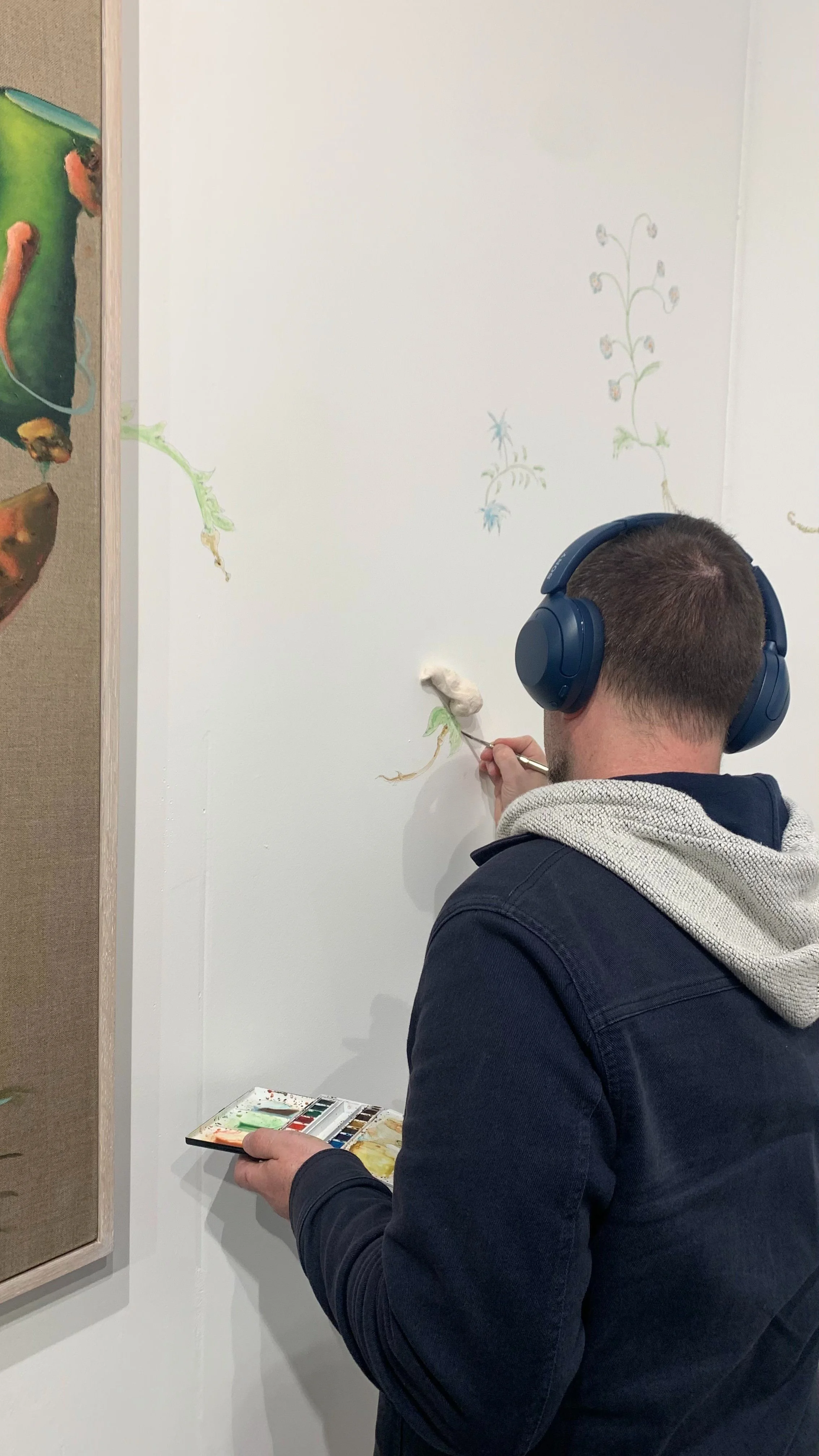











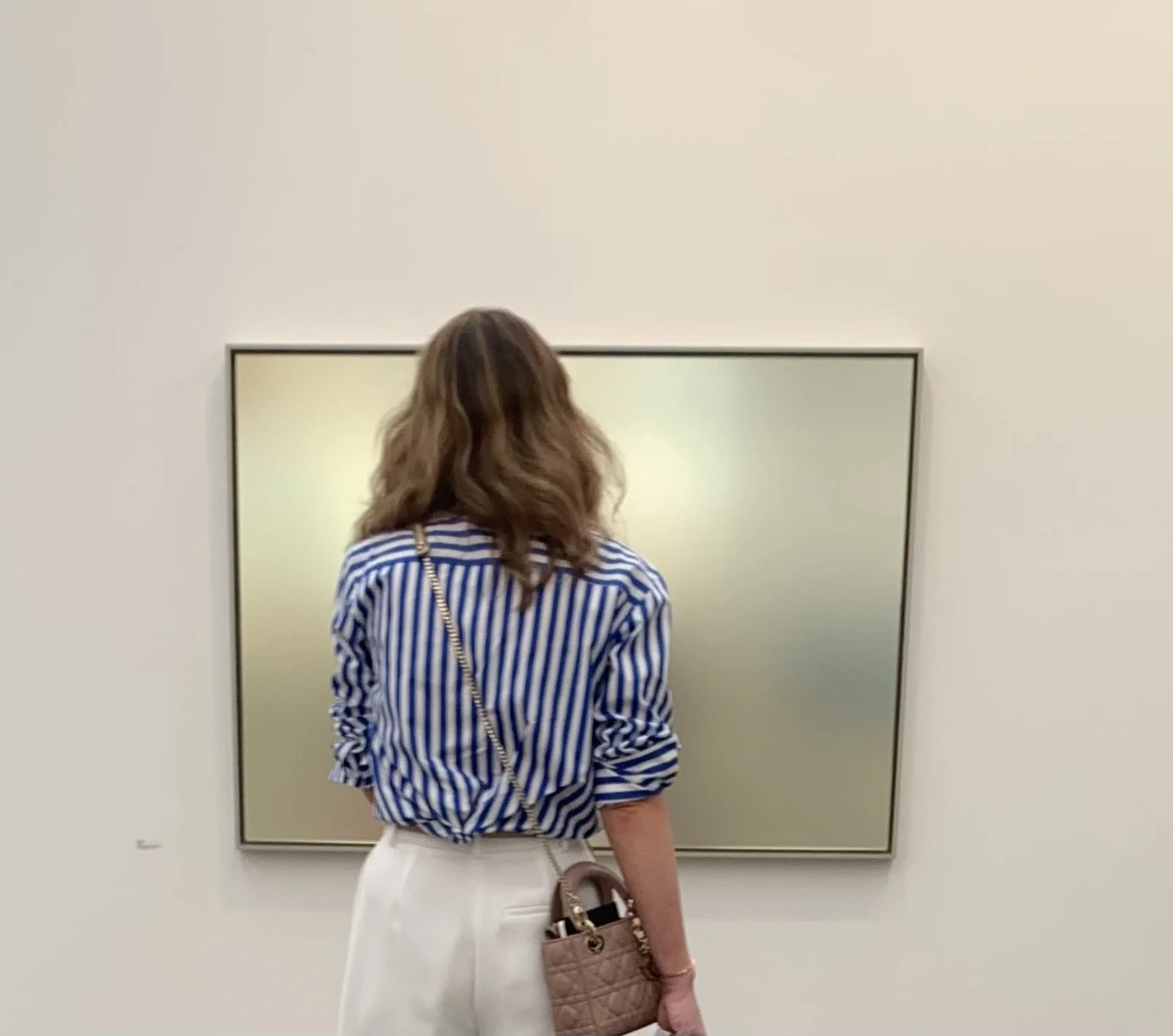
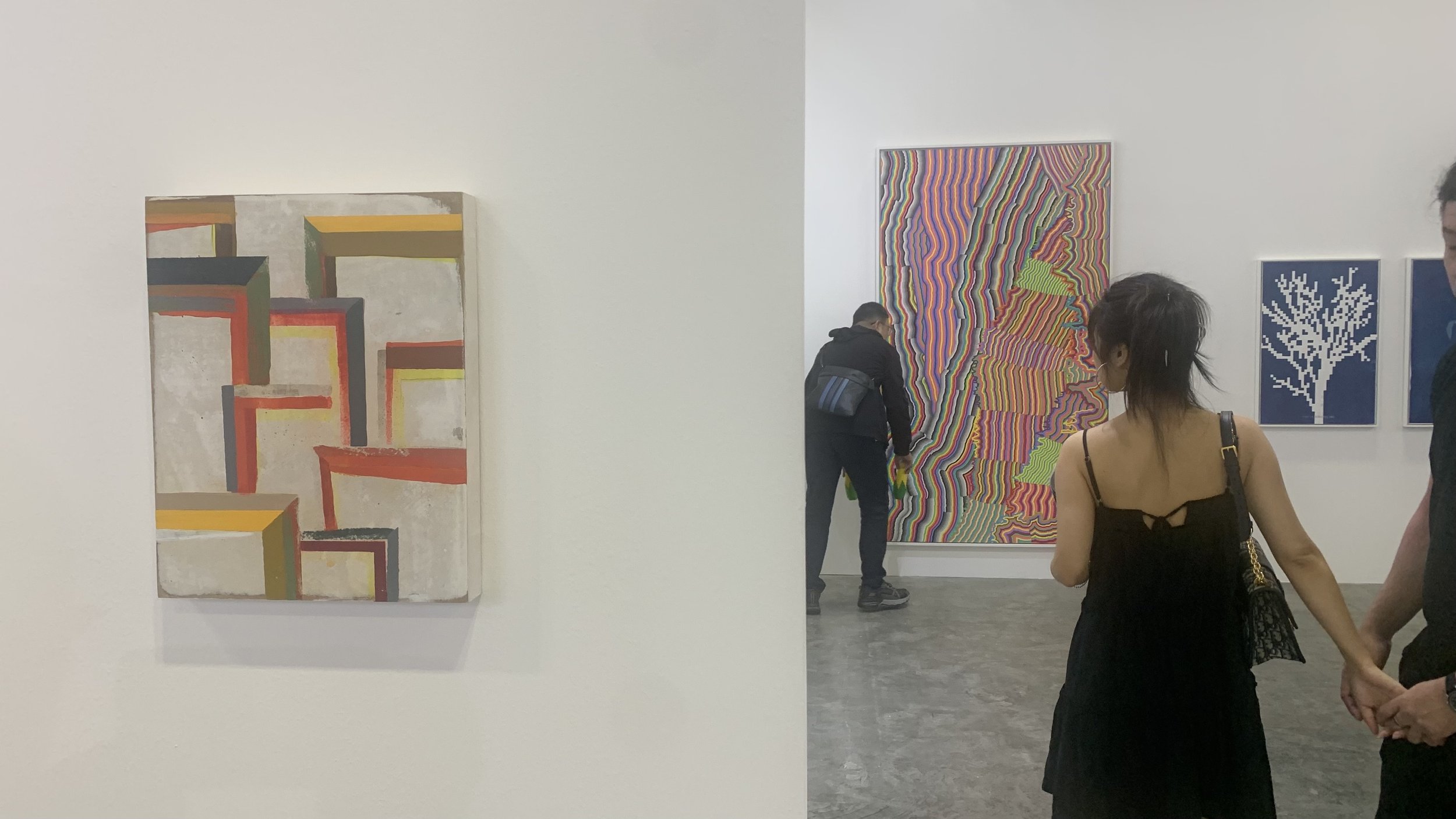



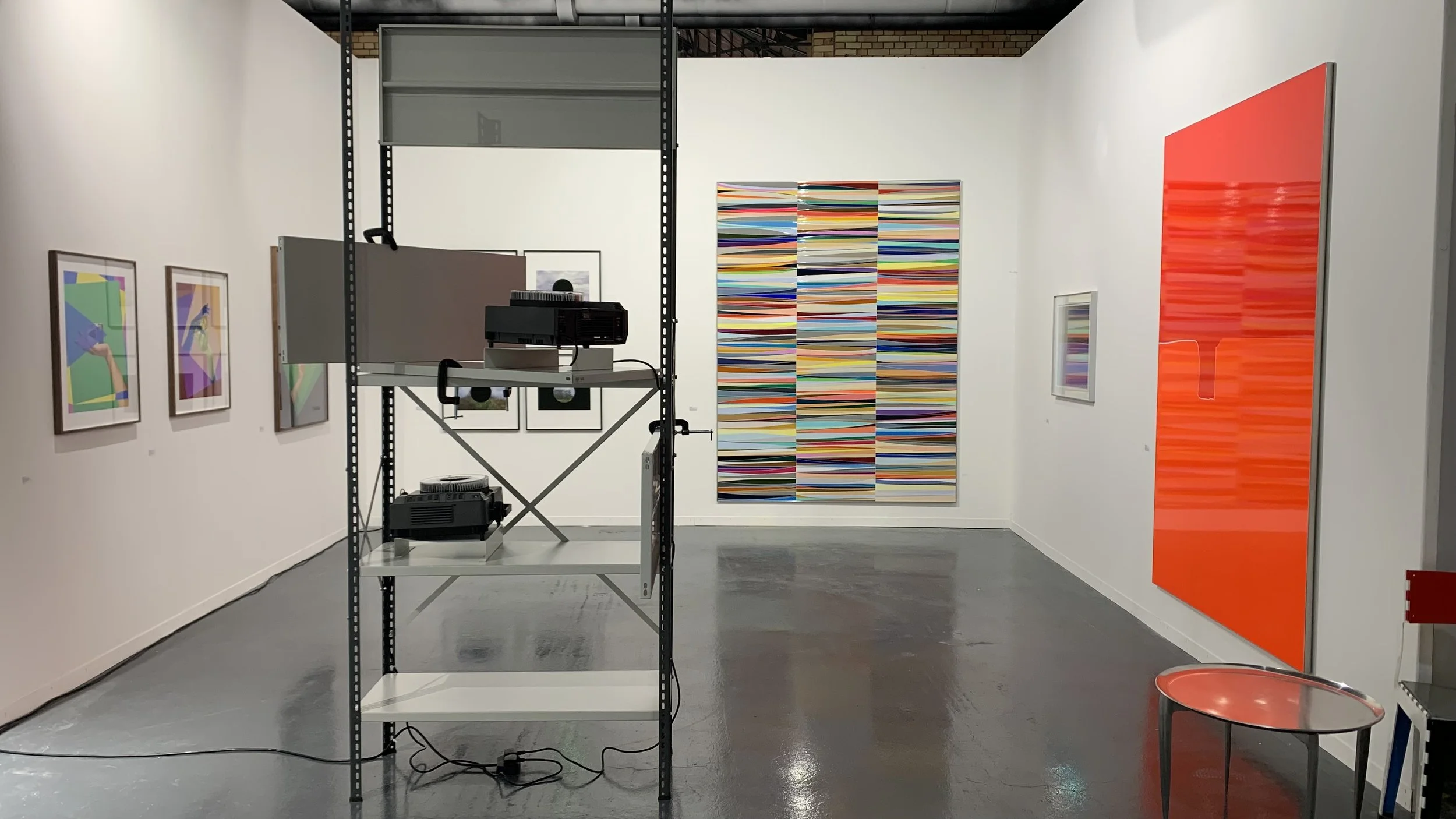

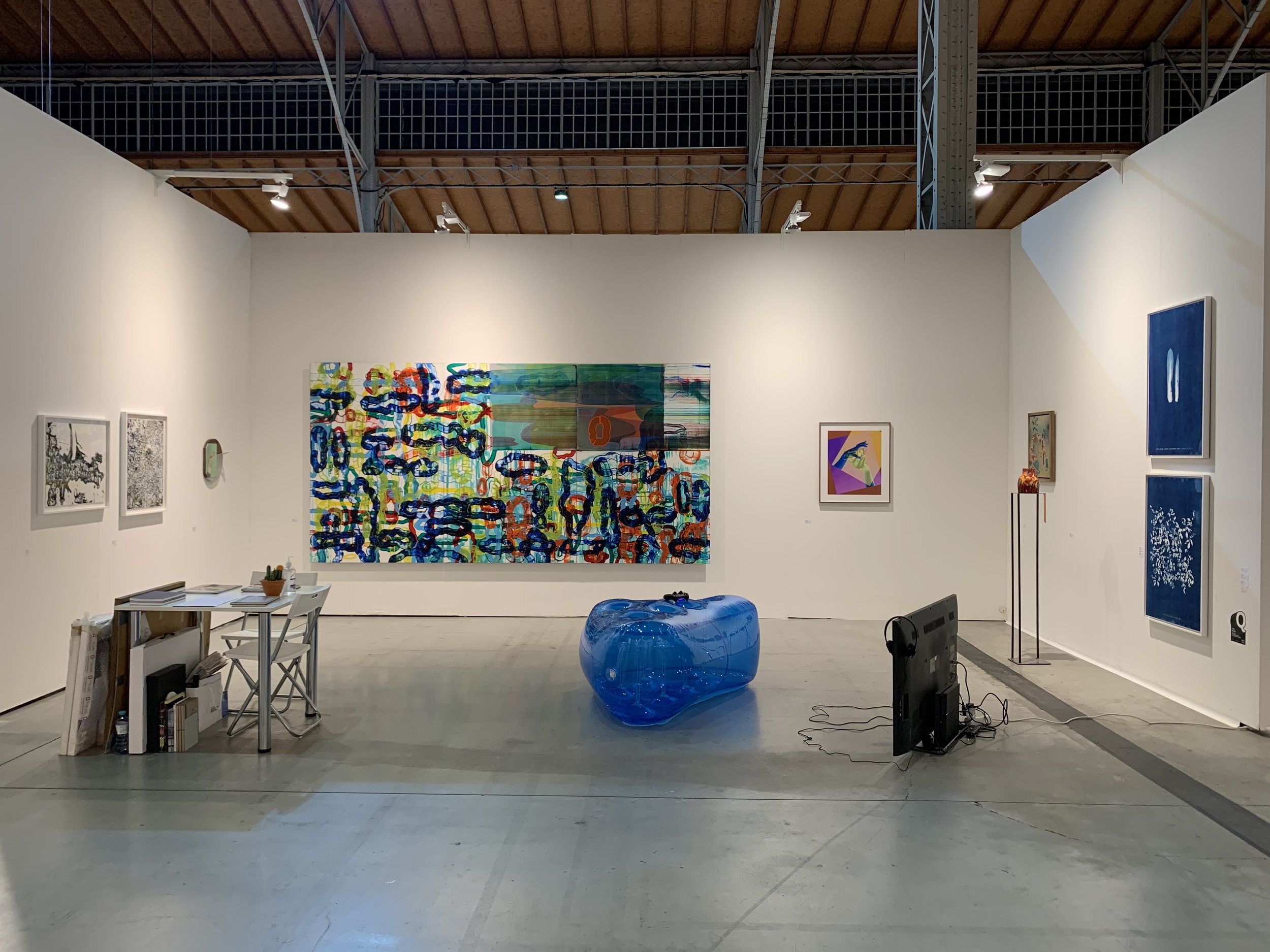

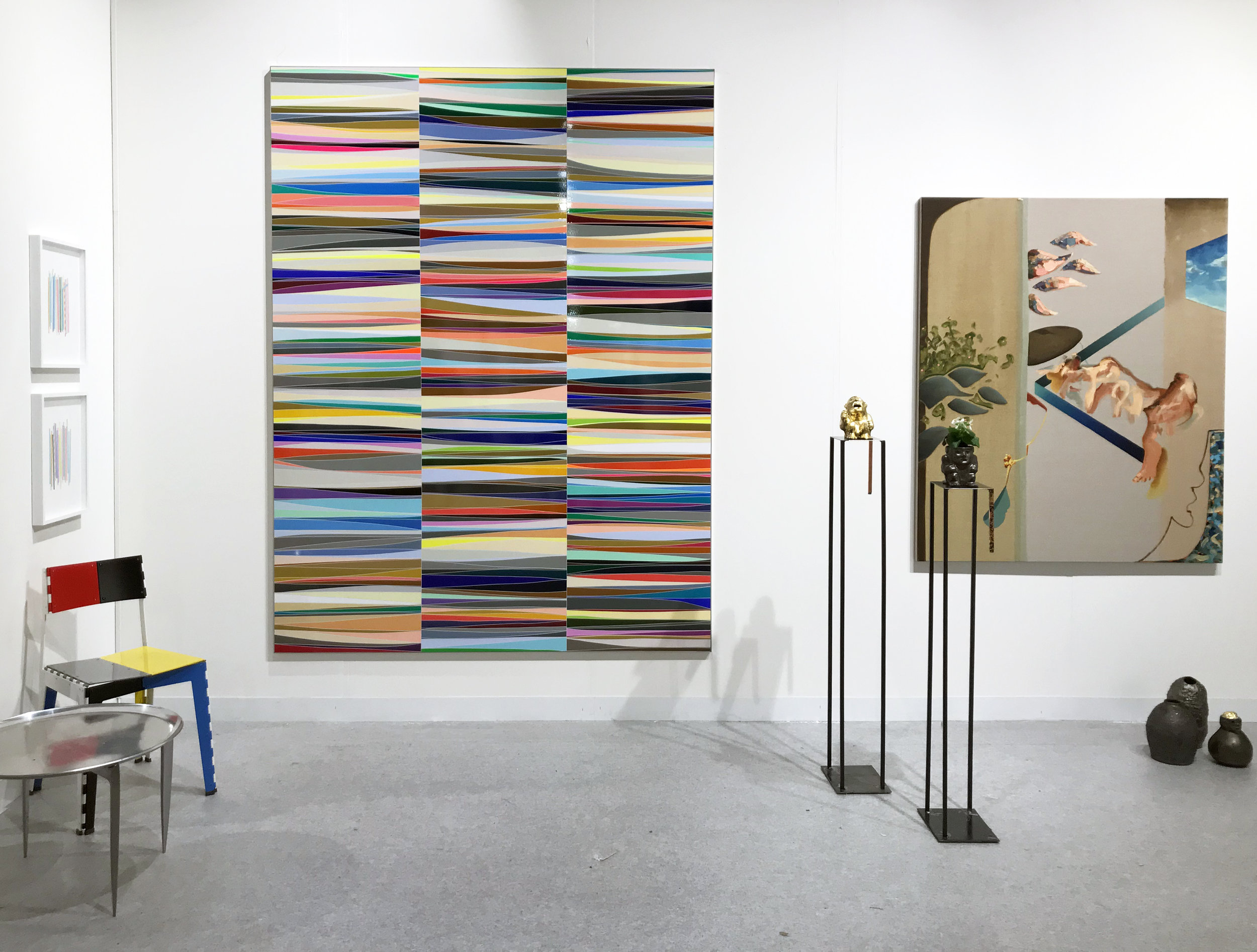





![Alan Butler DWARF EBONY (2017) Grow tent, LED, laser etched mirror, motor, pink fabric cable [length may vary] 61 x 31 x 31 cm .jpg](https://images.squarespace-cdn.com/content/v1/5bf3e614b98a78ef0cabecbd/1543241225209-G7SOGFBJEOFXV5D80I96/Alan+Butler+DWARF+EBONY+%282017%29+Grow+tent%2C+LED%2C+laser+etched+mirror%2C+motor%2C+pink+fabric+cable+%5Blength+may+vary%5D+61+x+31+x+31+cm+.jpg)












